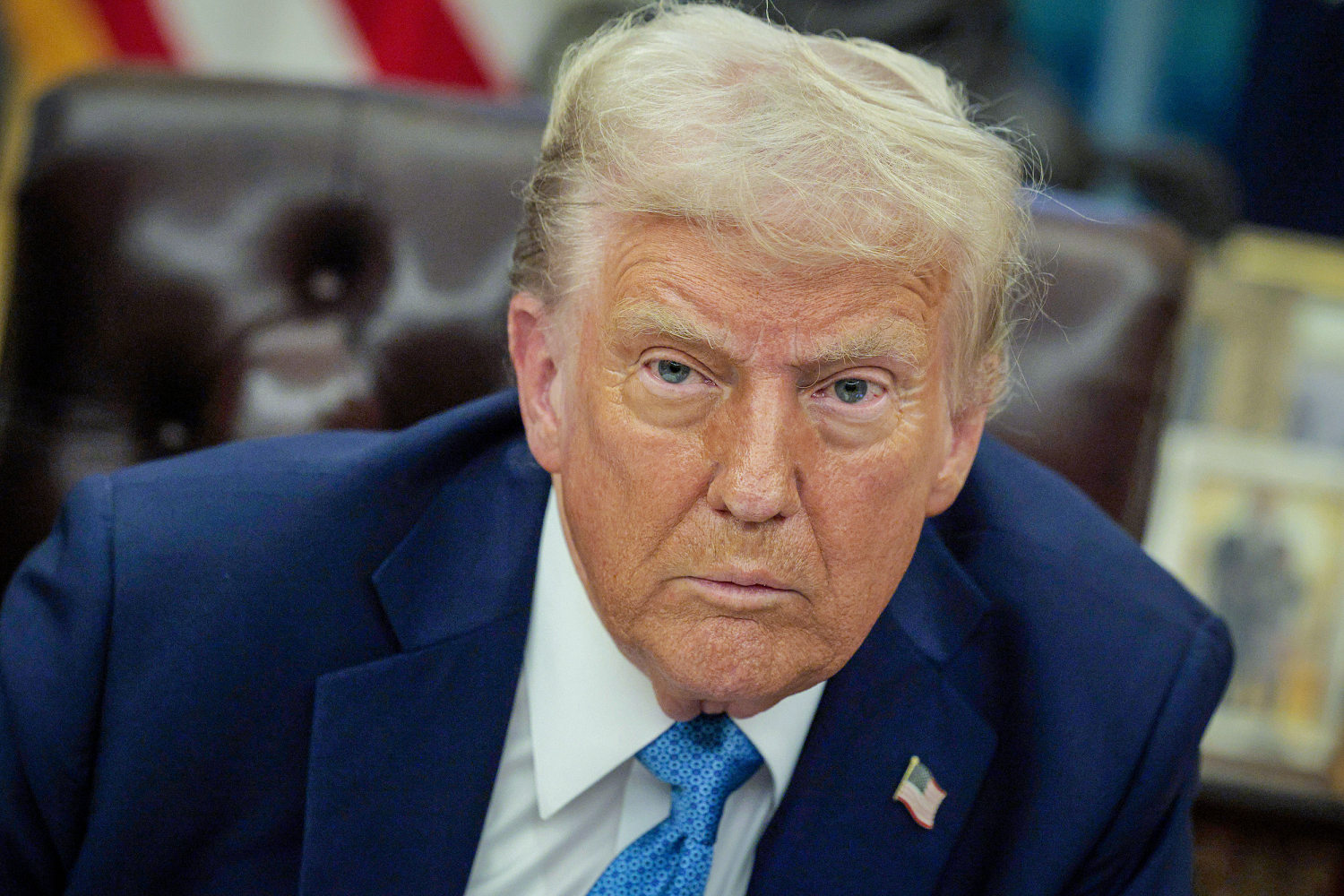
A federal appeals court on Tuesday rejected the Trump administration’s bid to pause a lower court’s order that temporarily halted a massive freeze in federal funding.
A judge in Rhode Island blocked the funding freeze Monday and ordered the government to “immediately restore frozen funding.”
Follow live politics coverage here
In its ruling Tuesday, a three-judge panel of the 1st U.S. Circuit Court of Appeals wrote that the “defendants do not cite any authority in support of their administrative stay request or identify any harm related to a specific funding action or actions that they will face without their requested administrative stay.”
The Justice Department had sought two different kinds of pauses of U.S. District Judge John J. McConnell’s restraining order barring the government from continuing to implement its sweeping freeze of funding and another ruling that found that government had violated the order. Lawyers for the Justice Department contended in part that McConnell’s order was vague, but the appeals court suggested they should be patient.
“We are confident the District Court will act with dispatch to provide any clarification needed with respect to, among other things, the defendants’ contention that the February 10 Order ‘bars both the President and much of the Federal Government from exercising their own lawful authorities to withhold funding without the prior approval of the district court,'” the appeals court wrote Tuesday.
It said both sides should submit further arguments on the government’s request for a stay pending a full appeal by Thursday. The administration has asked the appeals court to rule on the full stay request by Friday.
“These unlawful injunctions are a continuation of the weaponization of justice against President Trump. The White House will continue to fight these battles in court, and we expect to be vindicated,” White House press secretary Karoline Leavitt said in a statement.
The Justice Department did not immediately respond to a request for comment.
The legal challenge was brought by a coalition of 22 states in the wake of the chaos and confusion across the country last month caused by a wide-ranging Office of Management and Budget memo aimed at implementing some of President Donald Trump’s executive orders.
The memo directed federal agencies to “temporarily pause all activities related to obligation or disbursement of all Federal financial assistance, and other relevant agency activities that may be implicated by the executive orders” on issues like foreign aid and diversity, equity and inclusion programs. It was later rescinded, but Leavitt said the same day that the underlying funding freeze was still in effect.
Judge McConnell granted the states’ request for a temporary restraining order on Jan. 31 in a ruling finding the states “are likely to succeed on the merits of some, if not all, their claims” that the funding freeze exceeded the president’s powers.
“Federal law specifies how the Executive should act if it believes that appropriations are inconsistent with the President’s priorities — it must ask Congress, not act unilaterally,” he wrote.
The states later contended that some of the funding was still frozen, leading McConnell to issue an order Monday directing the government to comply with his order. He also pushed back against the government’s assertion that his order was vague.
McConnell wrote that the order lifting the freeze had been “clear and unambiguous” and that the states had “presented evidence in this motion that the Defendants in some cases have continued to improperly freeze federal funds and refused to resume disbursement of appropriated federal funds.”
The “pauses in funding violate the plain text” of the order, he wrote, directing that the funding be immediately restored.
It was the first time since Trump’s second inauguration that a federal judge has accused his administration of defying a court order, and it comes as his administration has hit numerous roadblocks enacting parts of his agenda because of legal challenges.
Vice President JD Vance wrote on social media over the weekend, “Judges aren’t allowed to control the executive’s legitimate power.”
Billionaire Elon Musk, whom Trump named as head of his advisory Department of Government Efficiency, also complained about the judges who have been blocking his access to some federal agencies. He suggested that some of those orders might need to be defied, a position that some frustrated staffers in the White House agree with.
Trump, who has a history of publicly blasting judges who have ruled against him, said Tuesday he would listen to the courts. “I always abide by the courts, and then I’ll have to appeal it,” Trump told reporters in the Oval Office.
McConnell is expected to a hold a hearing on the states’ request for an injunction this month.
